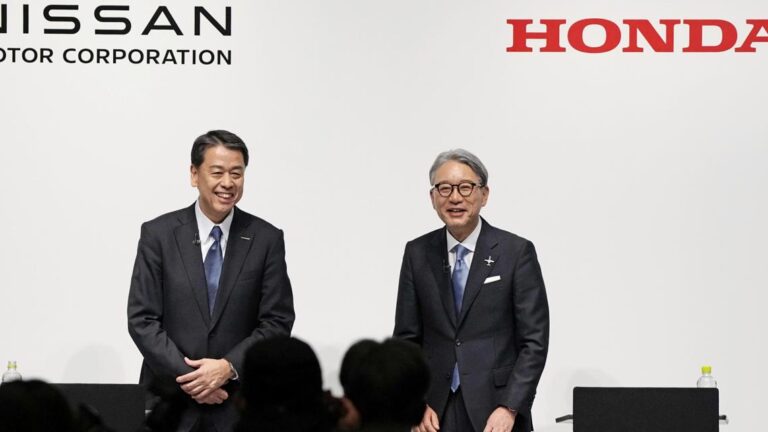Nissan Motor Corp. and Honda Motor Co. have confirmed ongoing discussions regarding deeper collaboration but have denied reports suggesting they are planning a merger.
Reports earlier this week claimed that the two Japanese automakers were in talks to merge, potentially forming the world’s third-largest automotive group. Following these reports, Nissan’s share price rose by more than 22% in Tokyo, while Honda’s stock fell by up to 3%.
The rumors also mentioned the involvement of Mitsubishi Motors Corp., a member of Nissan’s alliance, in the discussions.
While no merger deal has been made, both companies have been engaged in efforts to strengthen their partnership. In August, Nissan, Honda, and Mitsubishi announced plans to share components for electric vehicles (EVs), such as batteries, and to jointly develop autonomous driving software. A preliminary agreement between Nissan and Honda was signed in March.
After the merger rumors circulated, Nissan temporarily suspended its stock trading, only for it to resume after the companies issued a joint statement clarifying that they are exploring “various possibilities for future collaboration,” but no decisions have been made.
A merger between the two companies could create a combined entity valued at approximately $55 billion based on current market capitalizations, allowing them to better compete with industry giants like Toyota Motor Corp. and Volkswagen AG.
Nissan is also currently reviewing its ongoing alliance with Renault SA. Last month, the company announced plans to cut 9,000 jobs, or about 6% of its global workforce, and reduce its global production capacity by 20% following a quarterly loss of 9.3 billion yen ($61 million).
Honda, for its part, reported a nearly 20% decline in profits for the first half of the fiscal year, citing reduced sales in China, where local automakers are increasingly dominating the market.
Despite any potential collaboration, Toyota remains Japan’s largest automaker, having produced 11.5 million vehicles in 2023, while Honda and Nissan manufactured 4.2 million and 3.4 million vehicles, respectively. Even with a merger, Toyota would retain its lead.

